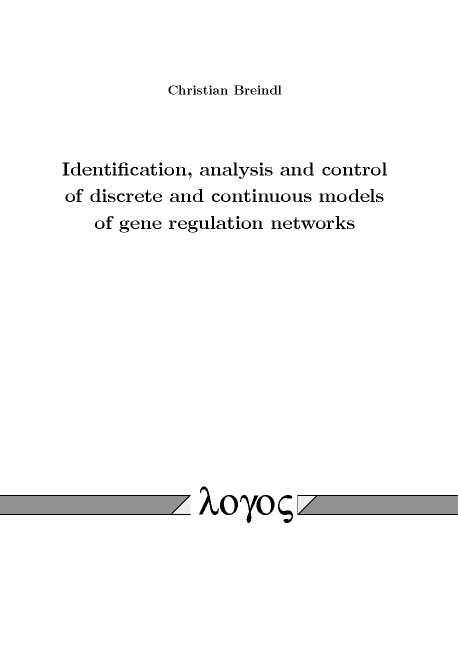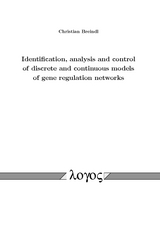Identification, analysis and control of discrete and continuous models of gene regulation networks
Seiten
A systems biological approach towards cellular networks promises a better understanding of how these systems work. The development of mathematical models is however inherently complicated, as the involved molecules and their interactions are mostly difficult to measure. Focusing on gene regulation networks, this work therefore intends to provide systems theoretic tools that support the process of model development and analysis in presence of such incomplete knowledge. The contributions are threefold.
First, the problem of identifying interconnections between genes from noisy data is addressed. Existing solutions formulated in a discrete framework are reviewed and simplified significantly with the help of tools from convex optimization theory. Second, a novel method for model verification and discrimination is introduced. It is based on concepts from robust control theory and allows to quantify the capability of a model to reproduce experimentally observed stationary behaviors. As the proposed formalism only requires a vague knowledge about the interactions between the molecules, the method is intended to test and compare early modeling hypotheses. Third, the problem of controlling gene regulation networks in presence of qualitative information only is studied. Methods from discrete event systems theory are adapted to obtain stimulation strategies that will steer the network toward a desired attractor. The benefits of all contributions are illustrated with examples in the individual chapters.
First, the problem of identifying interconnections between genes from noisy data is addressed. Existing solutions formulated in a discrete framework are reviewed and simplified significantly with the help of tools from convex optimization theory. Second, a novel method for model verification and discrimination is introduced. It is based on concepts from robust control theory and allows to quantify the capability of a model to reproduce experimentally observed stationary behaviors. As the proposed formalism only requires a vague knowledge about the interactions between the molecules, the method is intended to test and compare early modeling hypotheses. Third, the problem of controlling gene regulation networks in presence of qualitative information only is studied. Methods from discrete event systems theory are adapted to obtain stimulation strategies that will steer the network toward a desired attractor. The benefits of all contributions are illustrated with examples in the individual chapters.
Die Kunst der Übersetzung
| Erscheinungsdatum | 06.07.2016 |
|---|---|
| Sprache | englisch |
| Maße | 145 x 210 mm |
| Einbandart | Paperback |
| Themenwelt | Mathematik / Informatik ► Mathematik |
| Naturwissenschaften ► Biologie ► Zellbiologie | |
| Schlagworte | Boolesche Netzwerke • Ereignisdiskrete Systeme • Genregulationsnetzwerke • Konvexe Optimierung • Systembiologie |
| ISBN-10 | 3-8325-4283-3 / 3832542833 |
| ISBN-13 | 978-3-8325-4283-2 / 9783832542832 |
| Zustand | Neuware |
| Haben Sie eine Frage zum Produkt? |
Mehr entdecken
aus dem Bereich
aus dem Bereich
mikroskopisch kleine Multitalente
Buch | Hardcover (2024)
Schweizerbart'sche, E. (Verlag)
CHF 41,85
Buch | Softcover (2024)
University of Chicago Press (Verlag)
CHF 36,65




